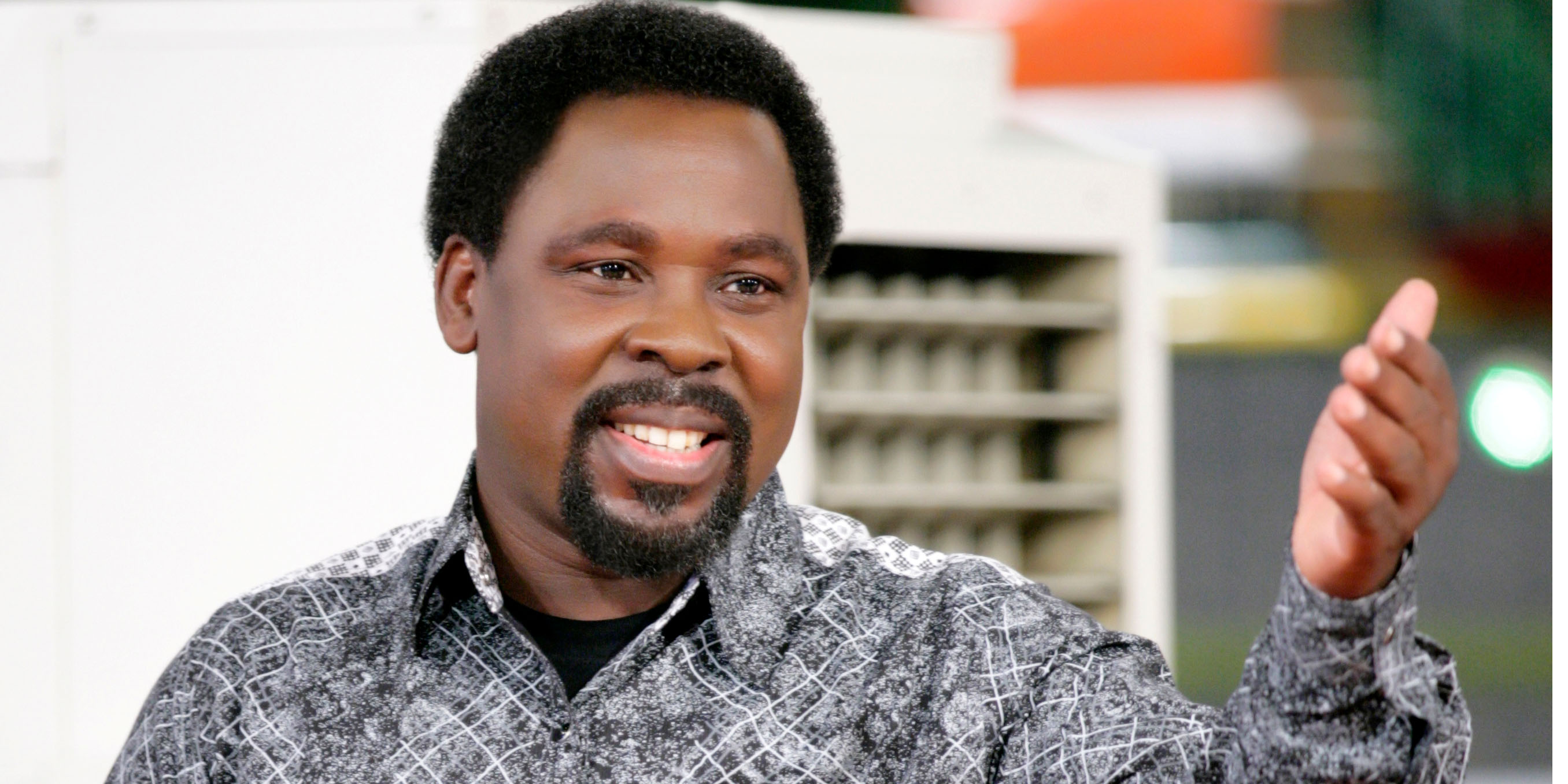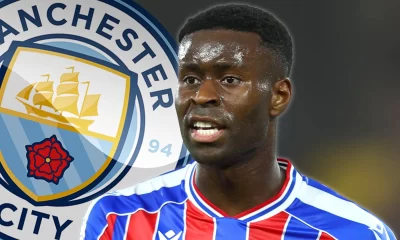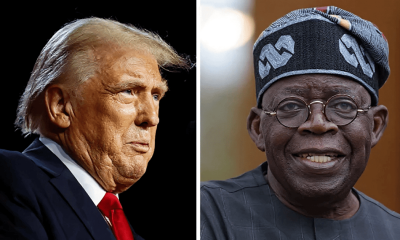News
Youtube walks dangerous line between tolerance and censorship in its decision to terminate channel of famed Nigerian Pastor T.B Joshua
Published
6 years agoon
By
Olu Emmanuel
YouTube recently made the decision to terminate the channel of prominent Nigerian pastor and televangelist TB Joshua, claiming that his content repeatedly violated the company’s hate speech policy pertaining to discrimination based on sexual orientation.
In a statement made Wednesday to Today News Africa, a YouTube spokesperson Ivy Choi said TB Joshua’s channel, which had amassed over 1.8 million subscribers and 600 million views, repeatedly violated community guidelines pertaining to hate speech. In particular, she was referring to videos in which the prominent pastor claimed to cure congregants of their homosexuality.
“In accordance with our long standing three strikes system, we terminated the channel The Synagogue Church of All Nations (SCOAN) for repeatedly violating our hate speech policy. Our Community Guidelines clearly prohibit content promoting violence or hatred against protected groups based on attributes such as sexual orientation,” the statement said.
Joshua responded to the labelling of his content as hate speech, stating, “Our mission is to share the love of God with everyone – irrespective of race or religion – and we strongly oppose all forms of hate speech! We have had a long and fruitful relationship with YouTube and believe this decision was made in haste.”
Many feel that it is a slippery slope to begin policing people’s actions or beliefs under the ambiguously defined label of “hate speech.” At what point does rhetoric become hate speech and stop being protected under the umbrella of religious freedom?
In the video that is most responsible for triggering the closure of Joshua’s channel, he “casts out the demon of homosexuality” from congregants.
The video’s description read, “God hates sin, not sinners. When the Bible says, ‘Do not judge so that you will not be judged’, it means we should hate sin, not the sinner because sinners can change… We should hate the act, not the people because our battle is not against flesh and blood but against the spirit beings that cause all these acts.”
While YouTube is meant to be a platform where creators can openly share ideas and express themselves, many have taken TB Joshua’s ban as an affront to the teachings of Christianity and an infringement on free expression.
Community guidelines are an important aspect of any social media platform such as YouTube, and representatives of the company have repeatedly asserted that hate is not welcome on the popular video platform.
Clearly, heinous offenses such as the incitation of violence or the promotion of child trafficking should have no place on YouTube. Yet, the label of hate speech can feel loosely defined, all-encompassing, and open to subjective interpretation. There is much disagreement about the extent to which offensive content should be tolerated and at what point free speech turns into hate speech.
Should a preacher be banned for openly practicing his religious beliefs just because they are offensive or controversial? What is the line that preachers cannot cross without their rhetoric being labeled hateful and impermissible? This raises many concerns amongst religious communities about whether pastors can be punished for merely reading the teachings of Scripture.
It can be difficult to achieve the right balance between appropriately monitoring hate speech and simultaneously promoting the free expression of religious beliefs. For instance, how can YouTube best administer its community guidelines to make sure that conservative Christians and members of the LGBT community both feel welcome and respected on the platform?
A platform with 2.3 billion users around the globe, YouTube is a subsidiary of Google and holds immense power and influence all over the world. The decision of what type of content should be allowed or banned from being posted on the platform is incredibly significant and impactful worldwide.
If YouTube were to disproportionately police conservative content, it would be accused of imposing the company’s ideological perspective on its users. Therefore, conservative Christians ought to be entitled to the same freedom of expression as more liberal content creators regardless of whether or not YouTube agrees with their perspectives.
YouTube spokesperson Ivy Choi asserted that all content creators are held to the same standard, saying of the decision to terminate TB Joshua’s channel for hate speech, “We enforce this policy consistently, regardless of speaker, nationality or religious affiliation.”
There is much controversy and disagreement surrounding the policies by which YouTube monitors content. If the organization wants to promote tolerance, it can be difficult to strike the right balance between respecting religious freedom and simultaneously protecting the interests of people groups.
While making sure that all users feel welcome on YouTube regardless of race, religion, or sexual orientation is one of the company’s top concerns, it is no easy feat to pull off. Protecting the interests of one group sometimes means taking protections away from another group, leaving YouTube performing a never-ending balancing act.
There are many practical challenges for a company like YouTube, which is headquartered in California, United States but has grown to immense popularity worldwide. This provides for additional difficulties in monitoring global content, given the religious and cultural differences between different parts of the world. Throughout Nigeria and much of Africa, homosexuality is currently punishable by law.
As the world reacts to the removal of TB Joshua’s channel and many disagree about whether or not it was justified, the pastor urged listeners Friday to “be strong” and said, “I got to know what happened to YouTube when I saw the viewers complaining… I want you to help me pray for YouTube… Don’t see them the other way around; see them as friends.”
Noah Pitcher is a U.S. and global politics writer at Today News Africa who specializes in covering the White House. A full-time undergraduate student at California Polytechnic State University of San Luis Obispo, Noah is studying Political Science with a concentration in global politics. Noah’s background and experience include working on congressional campaigns, with elected members of the American government, and as part of numerous research teams.
SOURCE – https://todaynewsafrica.com/youtube-walks-dangerous-line-between-tolerance-and-censorship-in-its-decision-to-terminate-channel-of-famed-nigerian-pastor-t-b-joshua/
Trending

 Health2 days ago
Health2 days agoCHD, others sue AAP over violations of childhood vaccine safety claims

 Football1 week ago
Football1 week agoPremier League game week 22 begins with Manchester derby as title race intensifies

 Football6 days ago
Football6 days agoSenegal crowned AFCON champions after stormy, controversial final against Morocco

 Football1 week ago
Football1 week agoChelsea poised for major pay-day from Marc Guehi’s expected Man City move

 Football7 days ago
Football7 days agoBreaking: Nigeria defeats Egypt on penalties to claim bronze at 2025 AFCON

 Crime6 days ago
Crime6 days agoU.S. approves $413m security funding for Nigeria, West Africa under 2026 Defence Law

 Business5 days ago
Business5 days agoFG denies citing Federal Gold Refinery in Lagos, says project privately owned

 Business7 days ago
Business7 days agoInflation falls to a five-year low, but Nigerians still feel economic strain

